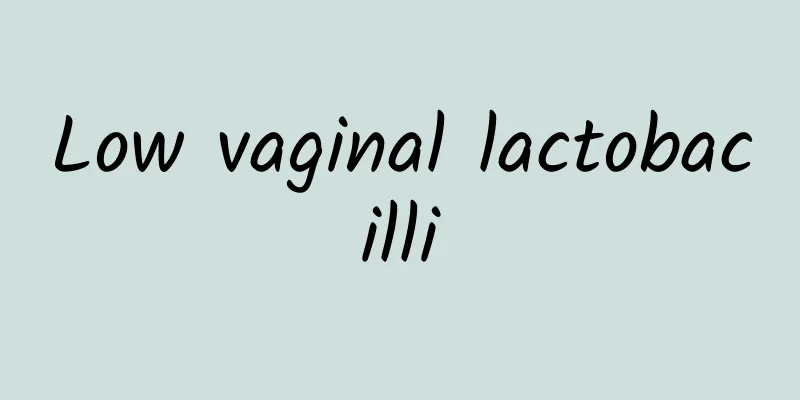What to do if your tongue becomes slightly numb after taking Chinese medicine

|
Nowadays, many people no longer take western medicine when they are sick, because although western medicine works quickly, it also has many side effects. Taking western medicine frequently can cause great harm to the human body. Although Chinese medicine is not as effective as Western medicine, it has no side effects. But some people feel a little numbness in their tongue after drinking Chinese medicine. So, what should I do if my tongue becomes slightly numb after taking Chinese medicine? The reason why traditional Chinese medicine causes tongue numbness is basically because it contains certain special ingredients, some of which are irritating volatile oils, and some are toxic biological alkaloids or glycosides. In ancient times, these "numb tongue" reactions were actually reminding people that this wild plant might be poisonous and should not be eaten or touched. Which of the commonly used Chinese medicines can cause tongue numbness? Sichuan peppercorn. As a condiment that can be used as both medicine and food, there is no need to say much about the numbness of the tongue caused by Sichuan peppercorns. Just go and eat hotpot and you will know. As a traditional Chinese medicine, Zanthoxylum bungeanum is the dried mature peel of the Rutaceae plant green pepper (fragrant pepper, green pepper, mountain pepper, dog pepper) or Sichuan pepper (Shu pepper, Sichuan pepper, red pepper, red pepper, Dahongpao). It tastes spicy and warm in nature, and can warm the middle and relieve pain, kill insects and relieve itching. It is used for cold pain in the abdomen, vomiting and diarrhea, abdominal pain caused by worms, ascariasis, etc. The tongue-numbing effect of Sichuan pepper comes from its volatile oil components. Toad venom. Toad venom is the dried secretion of the Chinese giant toad or the black-spotted toad, which belong to the Toad family. It is a poisonous Chinese medicine that can detoxify, relieve pain, and invigorate the mind. Used for carbuncle, furuncle, sore throat, heatstroke, coma, abdominal pain, vomiting and diarrhea. The tongue-numbing effect of toad venom comes from its cardiac glycosides, steroids and alkaloid components. Due to the unique effects of toad venom, many Chinese patent medicines contain toad venom, such as the Musk Heart Pills mentioned earlier for the treatment of coronary heart disease, and the Liushen Pills which have the effects of clearing away heat, detoxifying, and relieving inflammation and pain. Pinellia ternata. Pinellia is the dried tuber of the Araceae plant Pinellia ternata. It is also a poisonous Chinese medicine that can dry out dampness and resolve phlegm, relieve adverse reactions and stop vomiting, and eliminate lumps and resolve lumps. It is used for cough and asthma due to excessive phlegm, dizziness and palpitations due to phlegm and fluid, dizziness due to wind and phlegm, headache due to phlegm, vomiting and nausea, chest and abdominal distension, and plum pit qi, etc. The tongue-numbing effect of Pinellia ternata comes from its alkaloids and volatile oils. Since Pinellia is a classic medicine for drying dampness and resolving phlegm, many Chinese patent medicines contain Pinellia, such as Huoxiang Zhengqi Water, Banxiatian Ma Pills, etc. Among them, Huoxiang Zhengqi Water contains raw Pinellia ternata and ethanol, so the spicy tongue and throat sensation when taking Huoxiang Zhengqi Water orally is related to Pinellia ternata. Arisaema. Arisaema is the dried tuber of Arisaema confusa or Arisaema sutchuenensis, a plant of the Araceae family, and is also a poisonous Chinese medicinal material. Similar to Pinellia ternata, Arisaema consanguineum can dry out dampness and resolve phlegm, dispel wind and calm the nerves, and reduce swelling and disperse nodules. It is used for facial paralysis, hemiplegia, epilepsy, tetanus, vertigo caused by wind and phlegm, throat paralysis, scrofula, carbuncle, fractures caused by falls, snake and insect bites, etc. The tongue-numbing effect of Arisaema consanguineum also comes from the bioalkaloids in it. Chinese patent medicines containing Arisaema, such as Huafengdan and Jiujisan, may also cause tongue numbness. Asarum. Asarum is the whole herb with roots of Liao Xixin or Hua Xixin, plants of the Aristolochiaceae family. It is slightly poisonous and can dispel wind and cold, open the orifices and relieve pain, warm the lungs and eliminate phlegm. Used for colds, headaches, toothaches, nasal congestion and sinusitis, rheumatic pain, and coughs and wheezing due to phlegm and fluid. The tongue-numbing effect of asarum comes from its volatile oils and other ingredients. Taking Chinese herbal decoctions or Chinese patent medicines containing asarum may cause tongue numbness. Chuanwu/Caowu/Fuzi. Chuanwu, Caowu and Fuzi are all classic Chinese patent medicines containing aconitine, and are all toxic Chinese medicines. The symptoms of aconitine poisoning include numbness of the mouth and tongue. Therefore, Chinese patent medicines containing aconitine should not be used in excess. Excessive use will cause numbness of the tongue, indicating possible poisoning. In fact, many Chinese patent medicines for treating rheumatic pain contain Chuanwu, Caowu or Fuzi, and you must be careful when using them clinically. For example, Fuzi Lizhong Pills, Guifu Dihuang Pills, Hulisan Tablets, Dahuoluo Pills, etc. Strychnos nux vomica. Strychnos nux vomica is the dried mature seeds of the plant Strychnos nux vomica of the Logaraceae family, and is also a classic highly toxic Chinese medicine. It can dredge meridians, relieve pain, disperse stagnation and reduce swelling. It is used for stubborn rheumatism, numbness and paralysis, injuries from falls, swelling and pain from carbuncles, sequelae of polio, rheumatoid joint pain, etc. The tongue-numbing effect of strychnine also comes from the strychnine in it. Chinese patent medicines containing strychnine may also have similar tongue numbing effects, such as Biqi Capsules, Bitongning Capsules, Shujin Pills, etc. These Chinese medicines must be taken under the guidance of a doctor or pharmacist, and the usage and dosage must be strictly controlled. Of course, the appearance of tongue numbness does not necessarily mean that you must stop taking the medication. Generally speaking, qualified drugs may cause a slight numbness in the tongue under appropriate usage and dosage conditions. In this case, there is no need to stop the drug and it will not affect the treatment. However, if you take an overdose or use multiple drugs in combination, you need to stop the medication immediately and adjust the treatment plan. |
<<: Can moxibustion treat uterine fibroids?
>>: Comprehensive knowledge and skills of Chinese medicine
Recommend
What medicine to take for itchy lower body
Itching in the lower body is a common gynecologic...
What to do if pituitary gland atrophy?
Pituitary atrophy is a phenomenon that many elder...
What is the best sleeping posture for lumbar spondylolisthesis? What should you pay attention to for lumbar spondylolisthesis?
In life, especially those who sit in the office f...
Quickly eliminate buttocks
The symptom of nodules on the buttocks mainly occ...
Prostate physical therapy
Prostate disease is a common disease suffered by ...
Black Maca Wine Recipe
Black maca is a common health care medicine for m...
Dementia Syndrome Precautions
We need to actively treat dementia syndrome. So w...
Can I eat eggs when I have a cold?
When many people catch a cold, they always think ...
Symptoms of Breast Disease
Mastitis is mainly caused by some common gynecolo...
Chinese patent medicine for removing dampness, promoting blood circulation and removing blood stasis
Many diseases in the human body are related to ex...
What's wrong with the white spots on my lips?
Many people often encounter the phenomenon of whi...
Why is it that men have bitter sperm?
If a man's semen tastes bitter, it is usually...
Treatment of vitiligo
In the minds of some people, it can be said that ...
Can gout be treated with plasters?
Gout is extremely painful and unbearable, especia...
Heartbeat is very important, what should we pay attention to?
The heart is an organ that beats constantly. It c...









